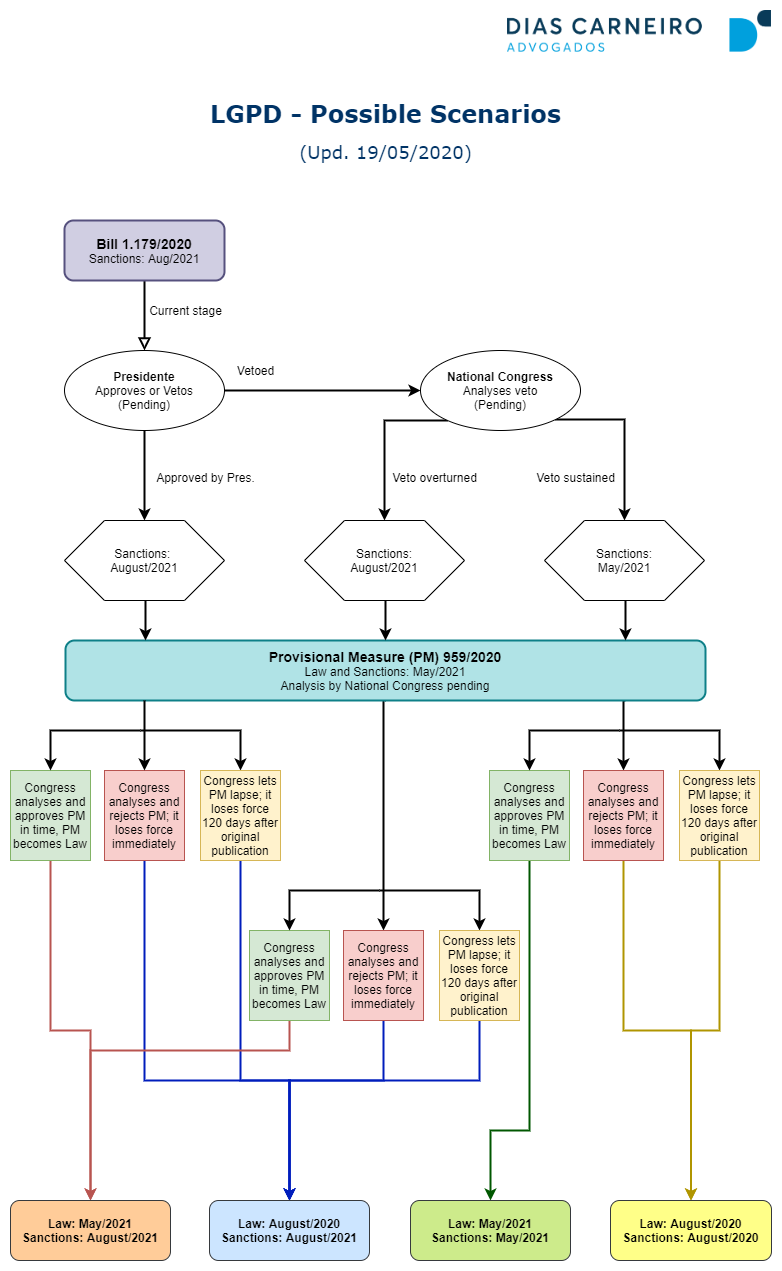


The National Congress approved a bill that only postpones the administrative sanctions provided for in the LGPD until August 2021. If sanctioned by President Bolsonaro, the LGPD may yet start in August 2020.
In a virtual session on May 19, 2020, the Federal Senate closed the vote on Bill no. 1,179 of 2020, which deals with the special regimen for private relations during the Covid-19 crisis, and which, among its provisions, brought about the postponement of the entry into force of the General Data Protection Law (LGPD), Law no. 13,709/2018.
In the version now approved by the Federal Senate, closing the procedure in Congress for this bill, and forwarded for presidential sanction, the entry into force of the law as a whole is governed by Provisional Measure No. 959/2020, in force at this time, which establishes May 3, 2021 as the starting date; however, the administrative sanctions provided for in the LGPD become applicable as from August 2021.
In the Senate vote, leaders highlighted the need for the law to take effect as early as 2020, which may indicate that Congress will reject or allow MP 959 to lapse, which would cause the LGPD to take effect as early as August of this year of 2020, even though the sanctions will only apply from August 2021. With much yet to be defined for a final date for entry into force of the new Law, the recommendation of Dias Carneiro Advogados is that companies proceed with their adequacy projects in order to guarantee an advanced degree of compliance should the law come into force already in August 2020.
In order to better detail the possible scenarios resulting from the latest developments in Congress, our firm has prepared the following infographic:

The Data Protection and Privacy team of Dias Carneiro continues to follow the development of the subject and is available to schedule brief videoconferences with clients who want to better understand the possible scenarios and implications for the validity of LGPD.